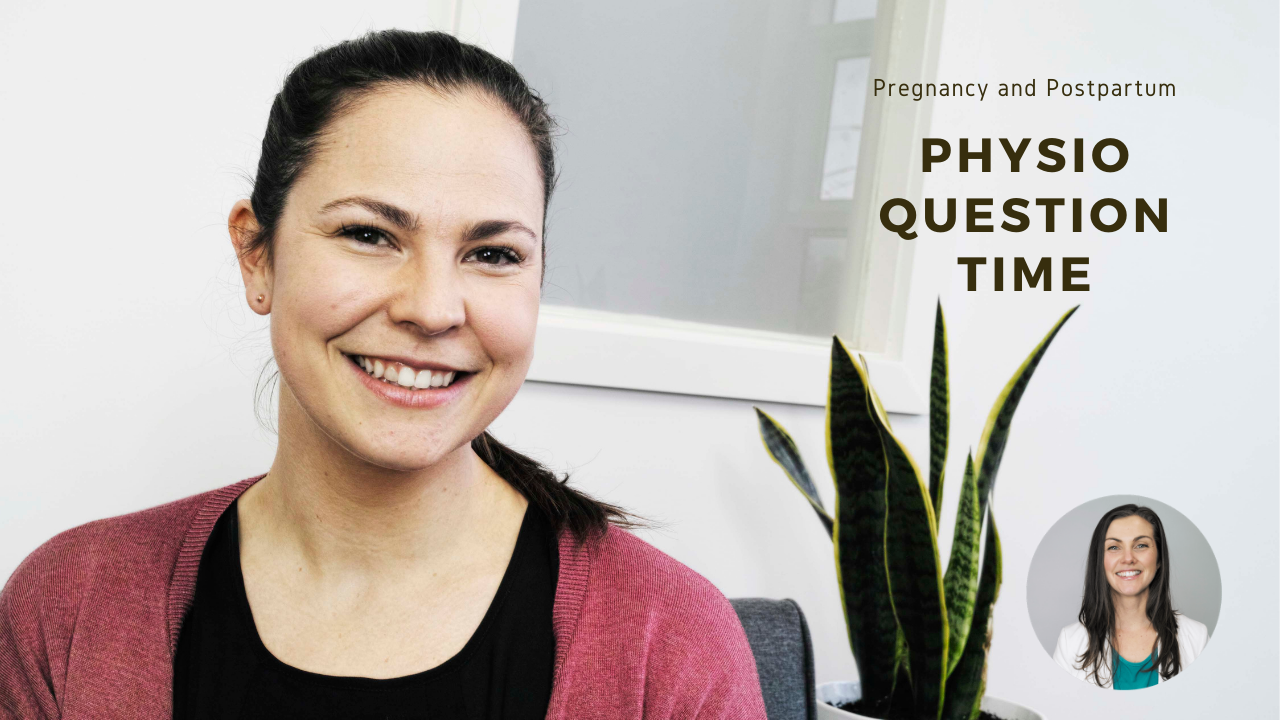Q&A with Prenatal Women's Health Physiotherapist

Questions and Answers with Women's Health Physiotherapist Beth Scott
We are excited to bring you a Q&A session with a Prenatal Women's Health Physiotherapist. If you have any questions or concerns about your health during pregnancy, this is the perfect opportunity to get expert advice.
Beth is a trained physiotherapist who has further specialised in the area of Women's Health after completing post graduate training in pelvic floor rehabilitation. Today, we have put some member questions to Beth who has provided us with the answers.
About Beth Scott
Beth has over 10 years experience in treating DRAM (tummy muscle separation), pelvic and lower back pain, pelvic floor weakness and pelvic organ prolapse. Beth holds positions in private practice and private maternity wards.
Beth also has experience in running pregnancy classes and new mum fitness classes. Her particular interest lies in the pre and postnatal period, where she strives to guide women in achieving their health, wellness and fitness goals.
Question 1: I have a sharp pain at the front (middle) of my pelvis at 25wks should I stop walking?
Beth: Only if you feel that walking is contributing to more pain. Often it's the length of your steps, so try reducing those, or swap to an exercise that doesn't bother it so much (think swimming, stationary bike, gentle exercise class etc).
If you can reduce your symptoms and monitor the response to your changes, you might establish a tolerable amount of walking that is still possible - and it can fluctuate during pregnancy so see what each week brings.
Question 2: Would a Women's Health Physiotherapist be you see to assess the damage done by the first birth and the risks with another vaginal birth?
Beth: This is a common question and has a lot of individual considerations. Close discussion with your healthcare professional is paramount. There are risk calculators such as the UR-CHOICE that I would encourage to use as a springboard for discussion with your obstetrician / midwife / Physio.
Question 3: Should all women see a health physio during and post pregnancy?
Answer Part 1: Physio in pregnancy:
1. We know that supervised PF ex in pregnancy that is taught correctly 1:1 reduces rates of post-natal urinary incontinence.
2. Help to pick up those at higher risk of pelvic floor muscle dysfunction.
3. Assists with birth preparation, by teaching how to relax pelvic floor, how to push in labour with appropriate direction, and practice labour positions specifically when a woman has pelvic girdle pain. This all leads to increased self-confidence, reduction in birth related anxiety, which contribute to better birth outcomes.
4. Helps to start a relationship with a women's health physiotherapist, which will assist in ensuring the woman attends her postnatal appointment at 6 weeks.
Answer Part 2: Physio postpartum
First visit at 6 weeks post-natal to assess for pelvic floor and musculoskeletal impacts of birth that are not looked at in the routine 6 week check from OBGYN or GP A physiotherapy based 6- week appointment assesses in much greater detail the physical impact and healing of the women, and the management thereafter.
Try PregActive for FREE for 7 Days >

Question 4
Do you often recommend pericalm?
Beth: I love the Pericalm! In fact I have set up pericalm programs with a few women this week to help kickstart their postpartum pelvic floor strengthening when they need extra help. Always best to be used under the guidance of a Physio.
Question 5: Some days my sciatica really gets me. Is it good to exercise even with a mild pain or should I rest?
Beth: Answering this is really tricky. Firstly, if it is confirmed sciatic nerve pain, generally continuing to exercise where tolerable is considered important. But I see a lot of women who assume they have sciatica when indeed it's something else causing back of leg/buttock pain. Best to see a Physio to confirm and advise on an individual basis.
Question 6: Pelvic Floor: how I am sure that I am doing the exercises correct? Sometimes I get myself confuse doing a pelvic floor combined with others exercises.
Beth: Pelvic floor exercises are often mistaken for whole body exercise, because when they are taught they can often be in conjunction with a stand alone movement e.g squats.
A true pelvic floor muscle exercise is done in isolation, so no one could be able to tell looking at you that you're doing one! The only way to truly know if you're doing them correctly is to be checked either by an ultrasound machine or an internal assessment.
Try PregActive for FREE for 7 Days >
Question 7: What are Your Thoughts on planks and mountain climbers in pregnancy? Plank on knees? And single heel drops lying on back?
Beth: Not a fan of plank in pregnancy. There are better and more functional ways to work your abdominal wall without overloading your linea alba and heading towards worsening a DRAM. I also don’t advocate lying on your back to exercise after about 12-16weeks gestation. Prior to this, however, heel slides/dead bugs are great.
Question 8: Lower back pain 6 months postpartum - any tips on what it could be and how to manage it?
Beth: Whether it is residual pain carried since pregnancy or a new pain developed being a busy mum of a growing baby... managing lower back pain is healthcare's number 1 challenge. Individual assessment is key here, and definitely not a one size fits all approach.
Definitely keeping active is the best thing for lower back pain, but when that doesn’t resolve your concerns, you're best to follow up with an appointment with a healthcare professional.
Do you have burning questions? Contact me with your requests on what Q&A you would like to see next.










